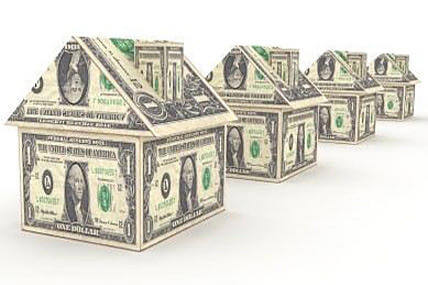A homeowners insurance policy offers basic protection from the most common disasters. But because it's built with the average American household in mind, your policy might not account for some risks associated with your location or cover all your possessions.
Floods
Flood insurance is mandatory when you have a mortgage on a home in a high-risk flood area. Even if you live outside a high-risk area, don't make the mistake of assuming you'll never experience a flood. In fact, nearly 20% of flood insurance claims come from areas of moderate to low risk, according to the National Flood Insurance Program. Whether it's a flash flood or just a few inches from a storm, water can cause massive damage to your home and belongings. If you're not financially prepared, the effects can be devastating. The National Flood Insurance Program has joined with insurers to offer flood insurance. Premiums, which vary depending on where you live, start at just $129 a year.
Earthquakes
Basic homeowners insurance policies don't offer earthquake coverage. Fortunately, in many states, special earthquake coverage can be added to your policy.
Anyone who has seen the aftermath of an earthquake understands the devastation one can cause. The extensive shaking and cracking can demolish entire buildings, destroying your home and possessions. If you live in an area prone to earthquakes, consider strengthening your policy with this coverage.
Home Businesses
Your homeowners policy provides limited coverage for business equipment. Also, you are not covered for liability related to your home business -- if, for example, someone gets food poisoning through your catering business or if a student visiting your home trips and breaks an ankle while leaving a piano lesson. If you run a business from home or have expensive office equipment, you may need additional coverage.
Valuable Personal Property
Homeowners policies can offer sufficient coverage for most personal property, but there are limitations. Valuable personal property insurance can take over where homeowners policies leave off. VPP insurance can provide coverage for losses due to fire or theft. It also covers damage or if an item gets lost -- say a stone falls out of a ring or the ring falls down the drain. If you own valuable items such as artwork, jewelry, musical instruments, firearms, furs or silver, consider obtaining a VPP policy.
Broader Personal Liability
Homeowners policies offer limited coverage for liability protection. Given the litigious world we live in, an umbrella insurance policy can provide additional peace of mind. An umbrella policy helps protect you and your earnings if someone, such as a baby sitter or handyman, is injured at your home. It also helps provide protection if you (or a family member) are found liable in a serious automobile accident.
This type of insurance can provide extended liability coverage beyond your home and auto policies. Consider shielding your personal financial assets with additional liability insurance.
The First Step
After reading about all these policies, you're probably wondering about cost. Start by shopping around: find the best rate on your homeowner's policy and use the savings to pay for the additional coverage - your homeowner's policy broker may also be able to bundle coverage or connect you with the policies you need.









